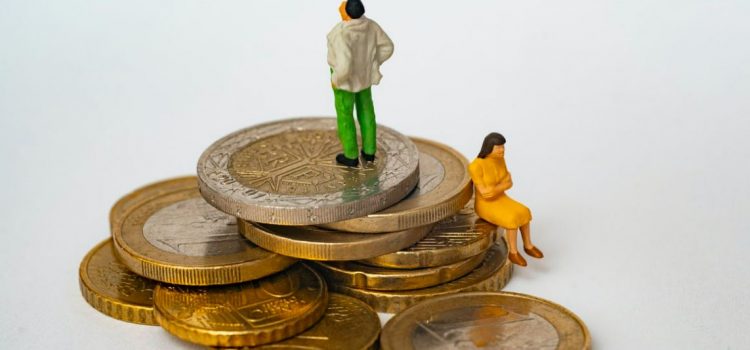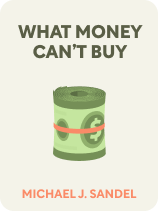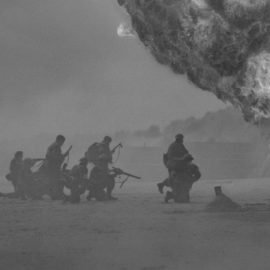

This article is an excerpt from the Shortform book guide to "What Money Can't Buy" by Michael J. Sandel. Shortform has the world's best summaries and analyses of books you should be reading.
Like this article? Sign up for a free trial here .
What is Michael Sandel’s What Money Can’t Buy about? What is the key message to take away from the book?
In his book What Money Can’t Buy, Michael Sandel argues that the imposition of the free-market system on society has corrupted the morals and values of its citizens. Many critics enjoyed the book but agreed that the main issue was that Sandel didn’t offer any solutions to the problem he outlines.
Continue reading for a brief look at What Money Can’t Buy.
The Moral Limits of Markets
In What Money Can’t Buy, Michael Sandel argues that market values have become society’s dominant moral framework, the lens through which we determine what is important or unimportant as well as right and wrong. Sandel warns that the logic and incentives of markets—where there’s no limit on what’s for sale as long as someone’s willing to buy it, and individual self-interest trumps the common good—have supplanted older value systems which held that some things were too important to be subject to the impersonal and calculating forces of supply and demand. He writes that this triumph of market values has had severe negative moral and social consequences.
(Shortform note: Defenders of free markets would argue that Sandel’s concerns about market values ignore the great benefits that capitalism has delivered to humanity. Some commentators write that the spread of capitalism has been the single most important factor in alleviating global poverty and raising worldwide standards of living. In the 200 years since the dawn of the Industrial Revolution—when global capitalism arguably entered its modern phase—the share of the world population living in extreme poverty has fallen from 94% to less than 10%.)
| Praise and Criticism for What Money Can’t Buy Although What Money Can’t Buy received less fanfare than Sandel’s previous work Justice, it was still generally well-received by critics. Reviewers applauded the book’s measured and politically philosophical approach. One critic also lauded Sandel for bringing the discussion of our market society out of academia and into the public discourse. However, some critics pointed out the book’s lack of specific and practical solutions to the problems that Sandel identifies. In particular, skeptics pointed to the apparent hollowness of Sandel’s proposed solution to the problem of the overbearing influence of markets: to simply “debate” these markets’ role in our lives. They noted Sandel’s lack of clarity on what the parameters of such a debate would be, who would mediate it or decide its outcome, and how we might implement its results. Other reviewers noted that the book fails to establish a clear framework for answering its central question: What should be the moral limits of the market? By failing to create some test or standard for when a particular transaction has violated moral norms, these reviewers argue that Sandel’s book leaves the reader with no clear guidance for which market behaviors are moral and which are immoral. |
Defining the Limits of Markets
At the end of What Money Can’t Buy, Michael Sandel writes that we must collectively discuss and decide: What are the moral limits of markets? Should we allow the free market to put a price on social goods like education and healthcare, as well as values and ideas like privacy, democracy, civic participation, and community? And what should money not be able to buy?
| The Moral Case for Markets A common critique of markets—and one that is voiced consistently by Sandel throughout What Money Can’t Buy—is that markets blur the line between morality and immorality by giving tacit approval to socially undesirable traits like selfishness and greed. However, some commentators argue precisely the opposite: that the market economy rests on a solid moral foundation that encourages morally correct behavior. As William Easterly writes in The White Man’s Burden, markets require a high degree of social trust (a morally positive trait) among strangers. This is because an economy based on voluntary transactions is only viable if customers can trust that they won’t be ripped off, that what’s being sold is genuine, and that people will honor debts and pay for goods they’ve ordered. Thus, according to this line of reasoning, free-market capitalism fosters virtues like self-reliance, social trust, and self-restraint. Moreover, markets produce better results, as capitalist societies are, on the whole, more prosperous and equitable than the preindustrial, precapitalist, traditional societies that came before them. This has led market proponents to dub capitalism the most moral and virtuous economic system in human history. |

———End of Preview———
Like what you just read? Read the rest of the world's best book summary and analysis of Michael J. Sandel's "What Money Can't Buy" at Shortform .
Here's what you'll find in our full What Money Can't Buy summary :
- How market values are corrupting society's morals
- Why markets lead to the inequitable distribution of essential goods, services, and experiences
- A look at the massive impact of living in a market society






